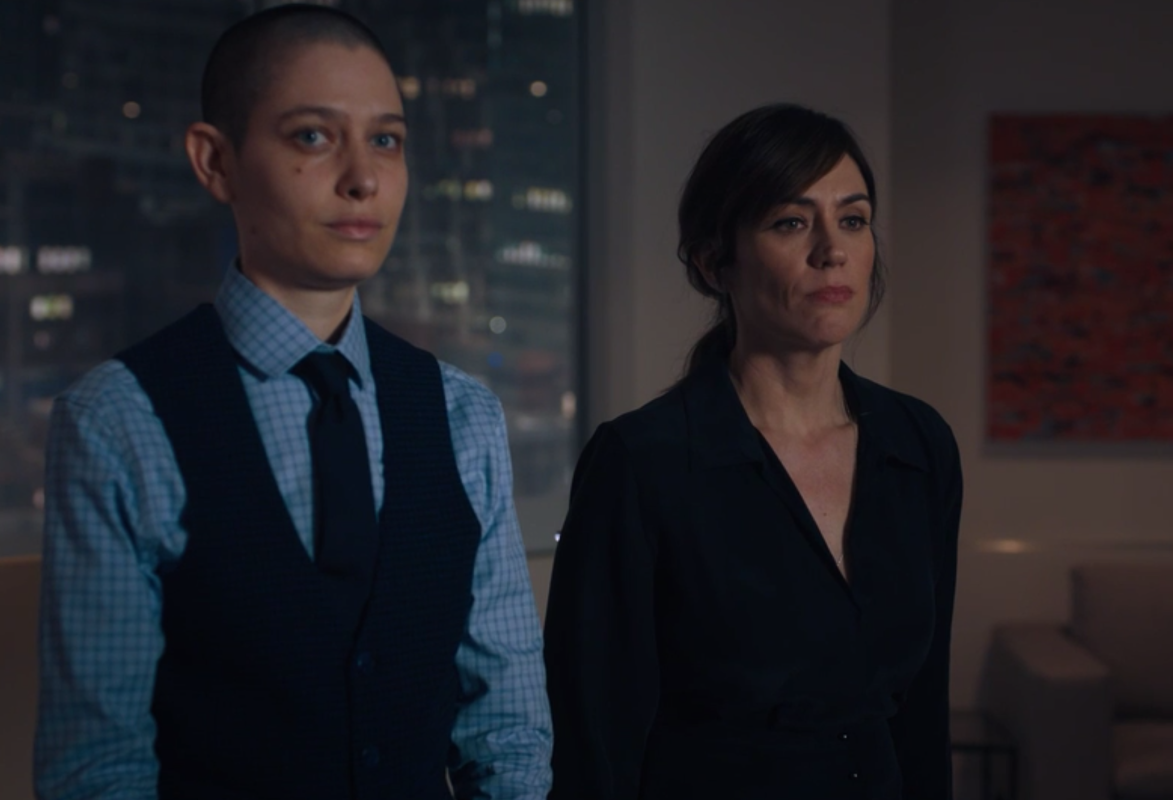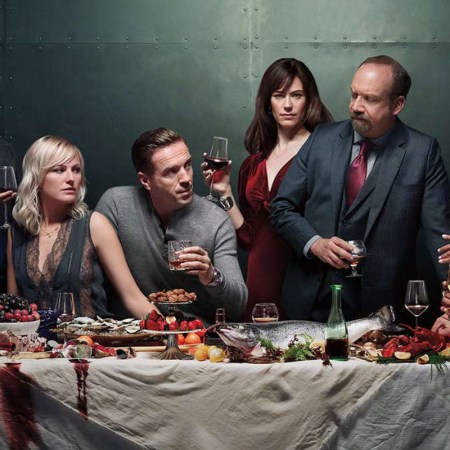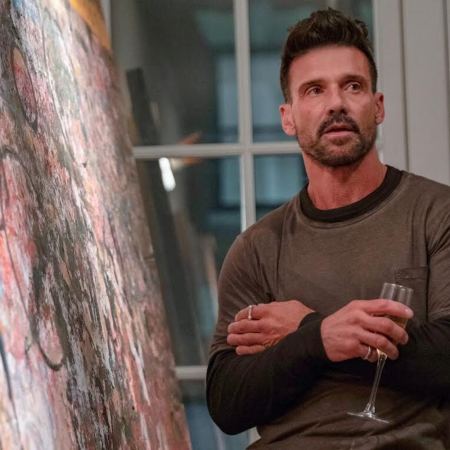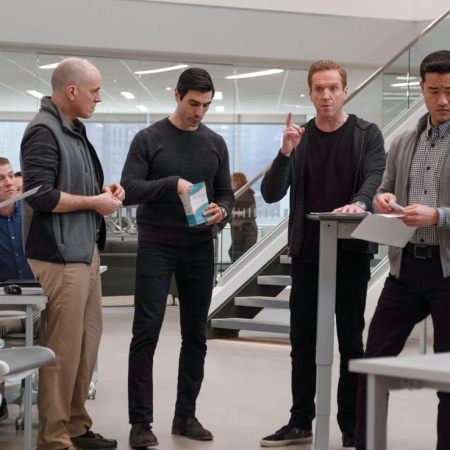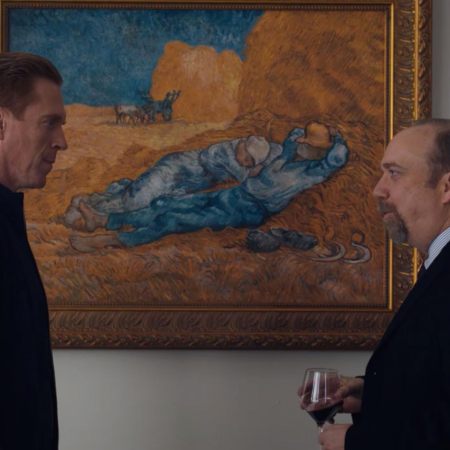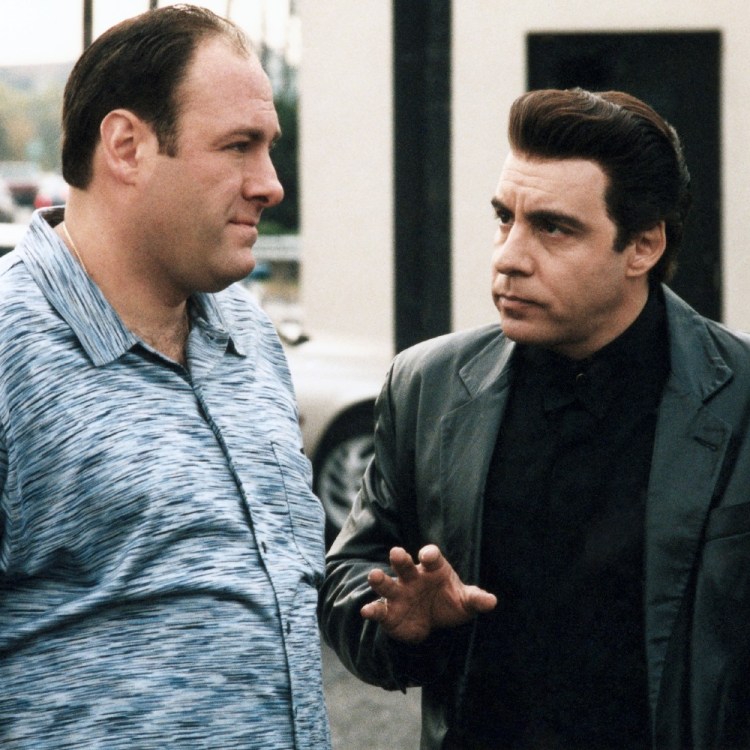Every Sunday night, we’ll be diving into the latest episode of Billions — the best finance-driven dramedy on premium cable — with a technical assist from Elliot Grossman, a veteran of the financial services industry. Since Billions is loosely based on real characters, we’ll be homing in on how the show tracks with the real world events and situations that inspire it. But of course, we’ll also be celebrating its wild excesses, shoddy ethics, endless cringes and highly questionable dancing.
Last week, we tackled Season 5’s hella-Faustian, “Beg, Bully, Bribe.” This week, we’re diving into “Opportunity Zone.”
Hoop Dreams
Season 5’s defining rivalry — Axe vs. newcomer Mike Prince — has mostly resulted in Axe losing to him in the realm of business (the ayahuasca coup), media (the Vanity Fair coup) and art (the Nico Tanner coup). But great rivalries also make foils of the characters involved. Tom Brady won with calm, Peyton Manning won with smarts. Thomas Jefferson was the libertine scribe and John Adams was the traditionalist orator. (See: Lennon-McCartney, Robinson-LaMotta, Magic-Bird, etc.)
Despite their shared humble roots, Axe and Prince each represent a certain brand of transcendent success. Axe channels the urcapitalist monster, priding himself in staying rooted to an everyman sensibility. Prince, well, fancies himself enlightened in business and in life. In the opening scenes of “Opportunity Zone,” we see Axe passively shooting hoops with Savian Wallace, a young striver now living in Axe’s humble childhood home in Yonkers while Mike Prince is playing one-on-one, capably, with the one-and-only Dominique freakin’ Wilkins at a tony private club. Which style is best suited to lead an urban renewal project on the mean streets of Yonkers?
Wendy City
Two other characters serving as useful foils, especially in this episode, are Wendy Rhoades and Taylor Mason, who operate, respectively, with empathic boosterism and indifference. Last week, we watched them battle over the meaning of the soul. This week, they unexpectedly team up to convince a stubborn, meat-eating petrol exec to be “greenwashed” with a fierce combo of heroic ego-stroking (Wendy) and the threat of whaler-themed obsolescence (Taylor). Pretty good scene, no?
But before we can know what may come of a terrifying Taylor/Wendy alliance, I have one burning question: Is Wendy real? Do these kinds of facilitator, head-shrinker, deal-whisperer figures exist in the financial services industry? Someone whose job isn’t actually to make money, but to assist those who do make money in ways that aren’t tangible or logistical, but more strategic and psychological.
“Yes, this exists,” Elliot explains. “These environments are often very political, which is one thing the show gets reasonably well. The paradigm in financial services is not unlike a professional sports team with a manager/coach and talented players. It’s very common to have managers who keep talented personnel focused and at peace with one another.”
Snowflake Mode
The reason we even ended up in a petro exec’s office was fallout from last week’s episode in which Taylor convinces a university dean to divest from fossil fuel companies and then refuses to pursue the jilted petro conglomerates in the aftermath. Unfortunately for Taylor, Axe swiftly captures them instead, Taylor loses their COO, and then fumbles $8.8 billion in potential assets from a list of colleges with similarly problematic investments. In a post-mortem with Taylor, Axe, and Wendy, Axe characterizes Taylor’s reluctance as a retreat into “snowflake mode.”
It’s hard to imagine that in the year of our Lord 2020 that anybody consuming popular culture is unfamiliar with the term “snowflake.” Originally, it was mostly seen deployed with scorn to describe the supposed hypersensitivity of discourse on college campuses—indeed, later in “Opportunity Zone,” we hear about snowflakes again in Professor Chuck Rhoades’s inaugural criminal law class at Yale. We all probably know snowflakes are a feature of academia, but are snowflakes a feature of finance?
A theme we keep seeing this season is the financial services industry reconciling itself with the ethics and morality. This week, Wendy Rhoades suggests that “perception and optics” are more important than ever, giving Axe Capital the chance to create a perfect balance between quant and fundamental, impact and traditional. But are external optics really driving a lot of change?
“I don’t want to prescribe a ‘causal’ relationship between optics and investment decisions,” Elliot explains. “However, for investors who have the size and visibility of someone like Axe or the others portrayed in the show, I imagine there are other risks weighed beyond profit and loss. Some investors are very conscious, to the point of paranoia, about staying out of the news. As a result, they likely feel compelled to avoid controversial topics.”
Before we can continue, I have to deliver praise for Elliot, who referenced the tobacco industry last week as an example of how the financial industry is embracing strategic long-term morality. Lo and behold, the movement away from tobacco came up in this week’s episode in a line of dialogue by Mike Prince. Smoke ‘em if you got ‘em.
Zone Defense
Speaking of Mike Prince, in spite of all his high-minded talk, this week he proves he is no match in the battle for the Yonkers Opportunity Zone on Axe’s home turf. In spite of the loss, we learn that Prince is (maybe) sincere. No matter how much Chuck tries to goad him into playing dirty, Prince won’t awaken the monster within to battle Axe. “Escaping it once was hard enough,” he says, “I can’t give into it now.” (Poignant words considering the audience.)
More interestingly yet, after so many setbacks, Yonkers turns out to be a pyrrhic victory for Axe. As Prince concedes in a phone call, he manages to rattle Axe by inferring that Axe is small and that Yonkers (and the stink of it) befits him.
As we watch Prince in a tux heading up the steps of Lincoln Center, having left behind his basketball roots in Indiana to ball with the likes of the Human Highlight Reel, Axe is still trying to win a popularity contest in the place where he grew up, a “dipshit town.” Even the idea of meatloaf dinner in his childhood home is suddenly a nightmare.
Odds and Ends
- Admit it, when you saw Chuck Rhoades approaching Catherine Brant (Julianna Margulies) in the august halls of Yale, you thought it was Wendy Rhoades. (Paging Dr. Freud.) Anyhow, those eager to learn more about Brant’s scholarship on “The O Gap,” the good folks at TED have a good breakdown of it.
- An interesting footnote in the history of the Prius is that, in the early years, it was the car’s specialized battery that caused Toyota to lose money. According to one estimate, each Prius sold cost the company about $10,000. More than 20 years later, the Prius has outsold others in the hybrid space by double.
- Special props to the Billions team for actually filming in the Yonkers scenes in Yonkers. Aside from shooting at Yonkers City Hall, which does indeed have a Popeyes and Burger King right across the street, the Ricky’s Clam House that Axe rhapsodizes is an actual bygone Yonkers institution. Not to nitpick, but its location isn’t downtown, but due east, where an outpost of the New Haven-famous Frank Pepe’s pizza now stands.
Until next week, your excuses sound like bullshit to me pal.
This article appeared in an InsideHook newsletter. Sign up for free to get more on travel, wellness, style, drinking, and culture.
